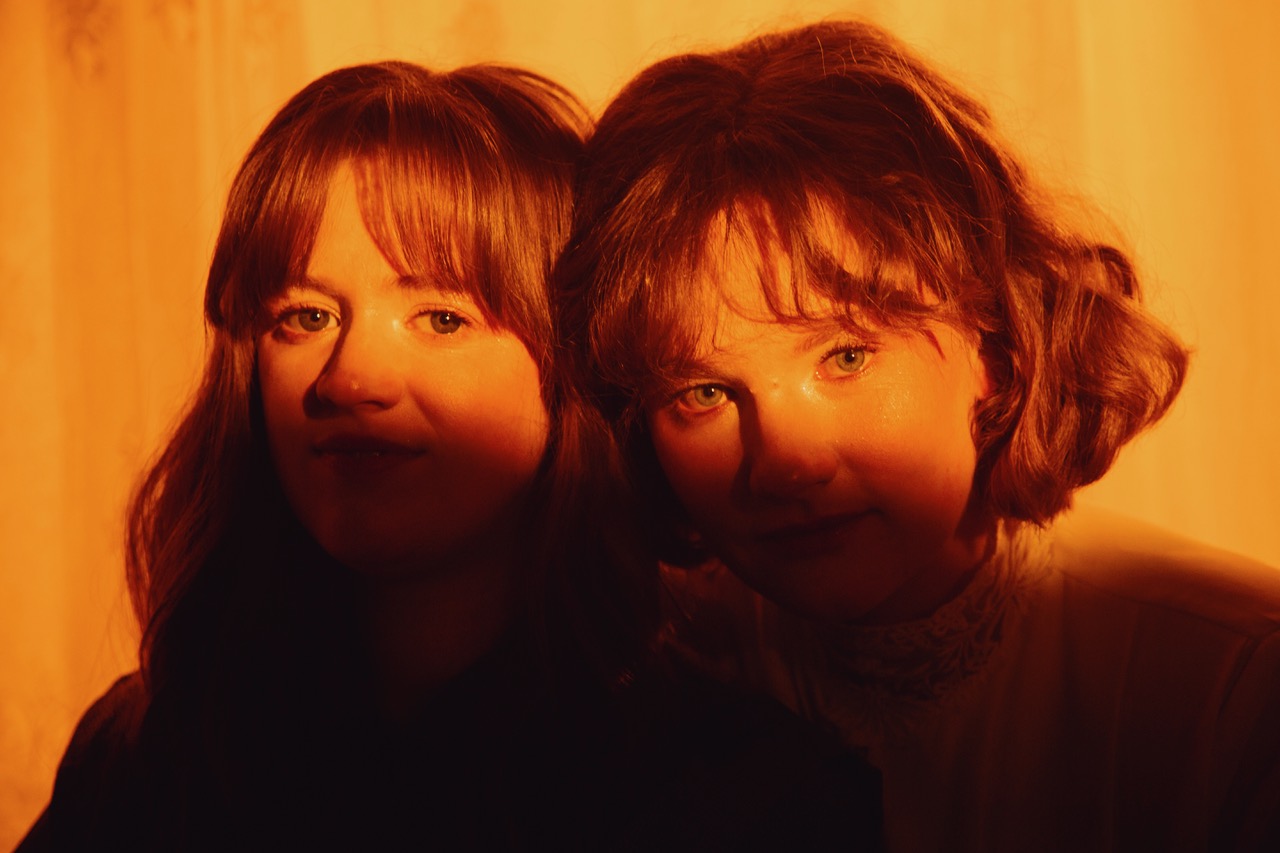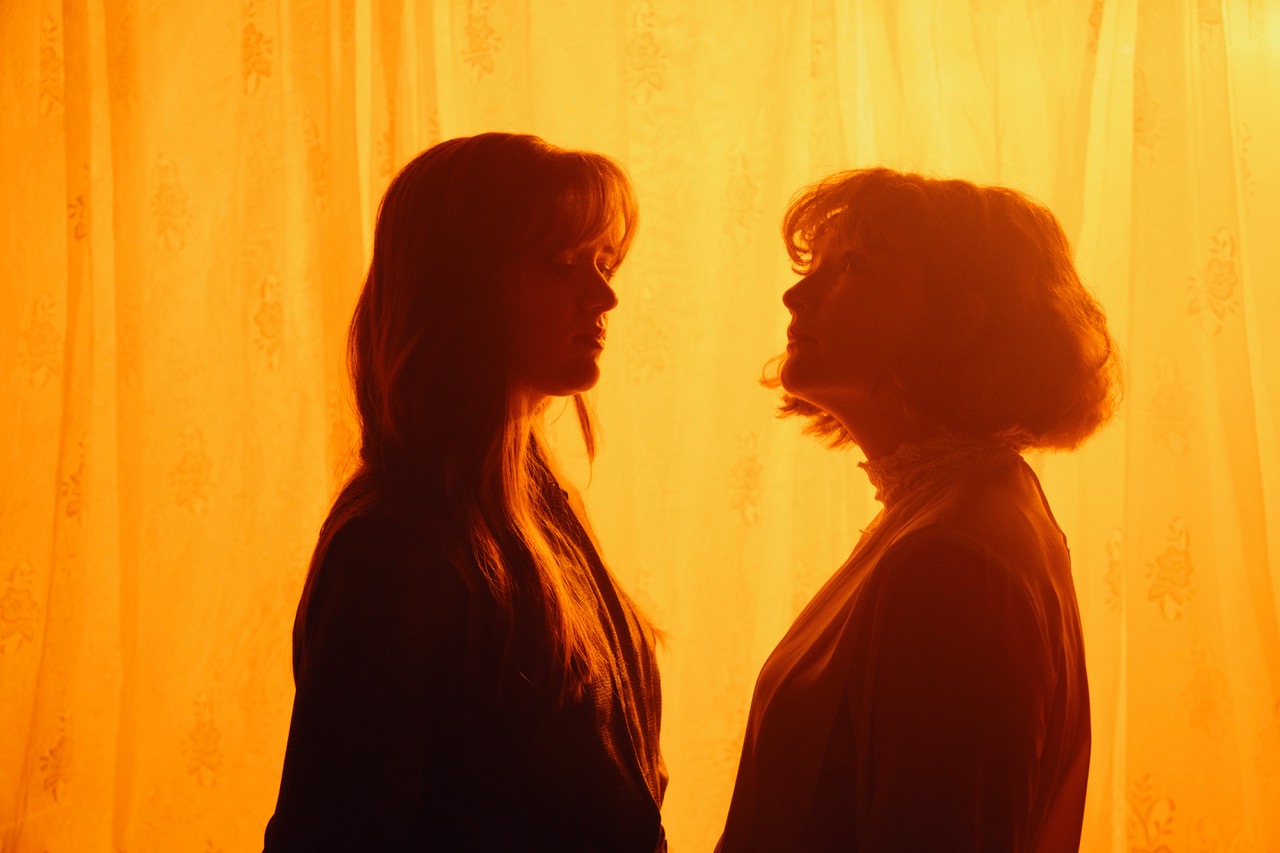Lemoncello In Conversation With FAULT Magazine

In the heart of Ireland’s folk scene, Lemoncello emerges as a captivating force with the release of their debut self-titled album today. With a tour on the horizon, we caught up with the duo to discuss their process, their music and as always, their FAULTs.
What inspired the themes explored in your debut LP, particularly the focus on relationships with oneself and others?
Laura: Lyrically, I think the album was inspired by looking back on teenage and early twenties years – the years I felt like I should always look to someone else for advice, the right answer, someone to tell me what to do, how to do it right. Each of the songs sort of documents a process of learning how to hold your own in life in one way or another; those experiences that lead you to learn to trust yourself, developing a strength of intuition. Some of the songs are exploring the realization that you are your own hero – nobody else can save you – and is the responsibility and weight also that comes with that freedom. I was also thinking a lot about sacrifice and balance of time and the line between the self and others. Where do you hold your own, stand up for yourself, and where do you bend and compromise for love? And if love is what is most important in the end then maybe it’s not sacrifice or compromise at all. The album holds more questions than conclusions but I feel the songs have gone through a journey or progression of some sort and have come out the other side with a bit more grit and resilience. I read a good bit about the artist Edward Hopper and his wife Josephine Nivisson Hopper. Josephine was an artist herself until she married Edward and then she stopped painting and started modeling in his paintings and became his manager. That dynamic interested me. ‘Michael Furey’ is a poem by Stephen James Smith called “I’ve had Lovers” which was inspired by James Joyce’s short story, ‘The Dead’.
Claire: Throughout the process of making this album, we learned a lot about facing ourselves and learning how to hold our own. There were a lot of new challenges we had to face in recording to analogue tape – it was a new process for us. There is only so much room on the tape so with our performances, we had to make a decision whether to keep the take as it was, flaws and all or risk losing a good take by recording over it from scratch. We had to learn to trust ourselves and trust in the process, stand by our decisions. This process coincidentally very much tied into the lyrical themes on the album too. The record grew into itself as it was being made.
Could you share more about the creative process behind your focus single “Dopamine”?
Laura: “Dopamine” was written during the pandemic. I was spending way too much time on screens, just watching other people’s lives go by. Scrolling is so interesting – just watching curated idealized versions of everyone else’s lives while you sit there almost not existing in your own. My brain was absolutely rotting. I took a weekend to turn off my phone. I read a book of letters I’d given my parents for Christmas (which I don’t think they’d ever read). I came upon this letter between artists Sol LeWitt and Eva Hesse. I’d been going through a period of not being able to write anything so I took great solace from Sol LeWitt telling Eva Hesse to ‘Try to do some BAD work — the worst you can think of and see what happens’. I decided to write the worst song ever and ‘Give me Dopamine, Give me Dopamine, I want more, I need more’ came from that place. It freed me up to be a bit stupid with a song.
Claire: I really wanted the arrangement of the song to be up-front and in your face. We kept that in mind with the harmonies and even the length of the song. It’s quite short and punchy in comparison to our other songs. Keeping in the tongue-in-cheek kind of mood, we added some technological elements with our friend Gareth Quinn Redmond on synth who created a sort of weird ‘My Parents Are Aliens’ soundscape behind it.
Did you stay close to the creative development of the accompanying music video?
Laura: Yes! The concept for the music video was around nearly since the song itself – I think I heard Blindboy Boatclub say that you shouldn’t look at Instagram or Twitter before you go to bed because it’s like trying to go to sleep in a room with a party going on. Some people are calling each other awful names, some shoving their workout routines and engagement rings in your face, and others crying at the top of their lungs because the sea is going to wash us all away very soon. I thought it would be a funny idea to put across in a video, the idea of the people we scroll past every day actually appearing physically in the room. I sent it to the amazing director Sophie O’Donovan and she put the idea together and made it better in the weirdest, most stylish, and fun way. We had such a hilarious time on set with the crew and all the characters who just had a gif-style action to repeat over and over and over again. The video plays into the song in that we wanted to be playful with the idea and not take it too seriously.

Technologically-induced isolation has quickly become a very universal feeling, is this something you have struggled with in the past?
Laura: Yeah, of course. As much as technology has brought us together in a lot of ways, and eased loneliness for people it’s also changed the way we interact with each other and I think that maybe is where the isolated feeling comes from – the quality of interaction is different. I do notice there’s a certain fatigue happening among a lot of people. What’s dangerous about it I think is that oversaturation can put us into autopilot disengaged mode and that’s a harmful way for us to be in the world. I see smart people pulling away from constant communication or consuming stuff, taking measures to protect their brains. I find it can feel selfish and lonely at first, pulling away and drawing boundaries around my phone, but it has to be done. The obvious benefits of turning off notifications, getting out into fresh air, a good book, or a conversation with a real human are hard to see in stressful times.
Can you elaborate on the significance of the analog recording process for your album?
Claire: Recording the album on tape felt like the right way to capture the energy between us as a band. You don’t record to tape to make a really clean product – and that’s not what this album is – it’s an unfiltered document of a place and time. It was such a joy working with our producer Julie McLarnon. We didn’t look at a computer screen the whole time making the record. The best part of recording to tape is the limitations that it brings – so in this way we benefited from having to make choices quickly and trust instinct and feeling more than technical ‘correctness’. The magic comes when you put your trust in it.
What’s been the most challenging creative hurdle on this project?
Claire: Definitely choosing to make the record completely analogue brought a whole host of challenges that we didn’t foresee. We’re so used to living in a world where you can write/record something, then go back, edit, delete and “fix” the problem. The fact that there was no “fixing”, instead, it was give it your all with this performance because the tape is rolling. But because of this limitation I think it brought out some of our best performances of these songs, so we’re really grateful for how the process pushed us in that way.
With an extensive tour ahead, what do you hope audiences take away from experiencing Lemoncello live?
Claire: We’ve been putting in so much work behind the scenes for the shows and are bursting to finally be able to play these songs with the album released into the world. Hopefully, the audience will go away with a feeling of being transported somewhere else for a while and taking something with them from the songs.

What is your FAULT?
Claire: I think sometimes how much I am a realist can hold me back, as having wild and wonderful dreams is so important and how magic can happen. Laura is very much the opposite, so I think she brings me out of myself with this tendency.
Laura: Yes, Claire also balances me out in that way, sometimes I can be impractical. I am bad at managing time. I want to do everything. My To-Do lists are the most ridiculously over-aspirational lists of all time. What I want to do in a day, realistically I won’t get to for over a year. I am also extremely clumsy.